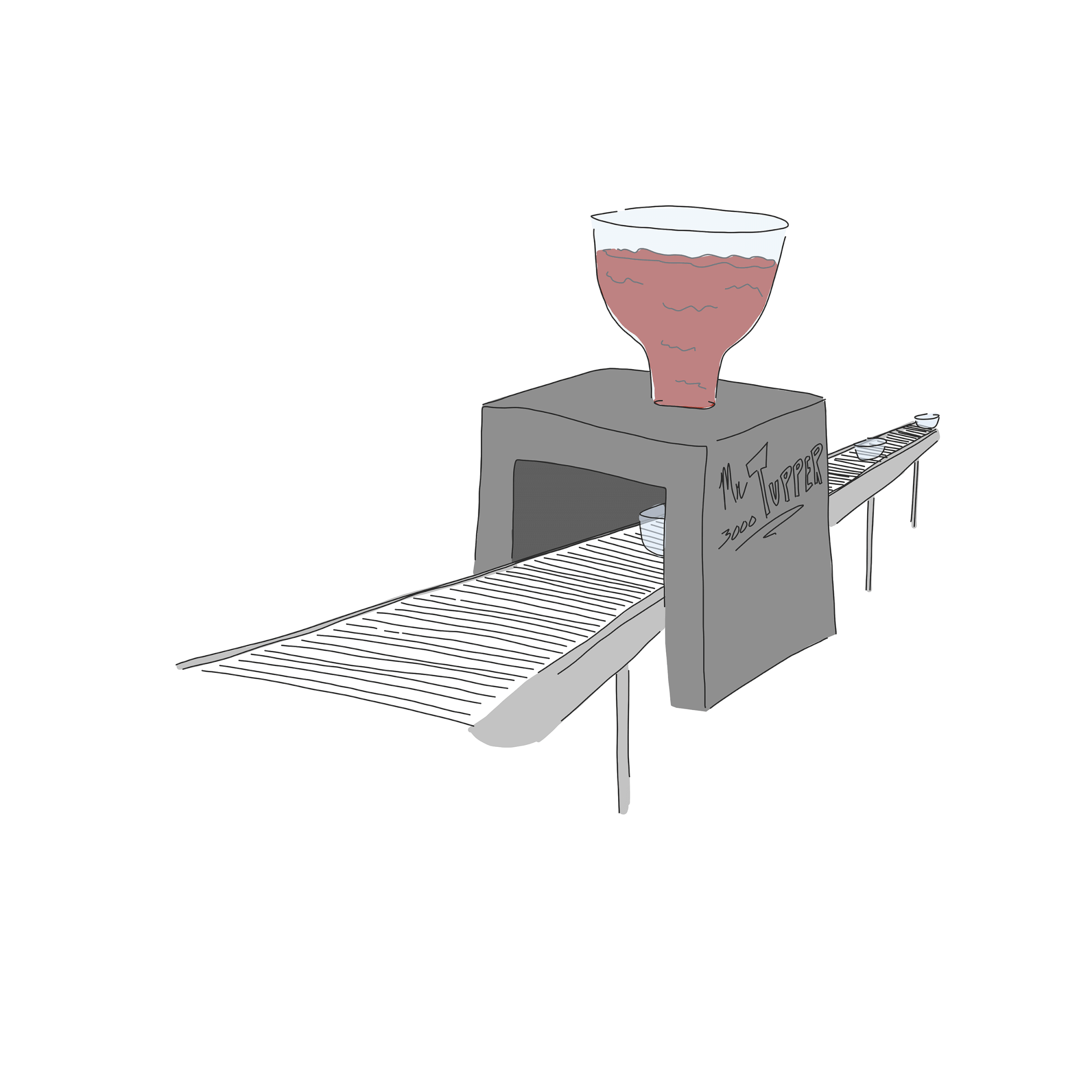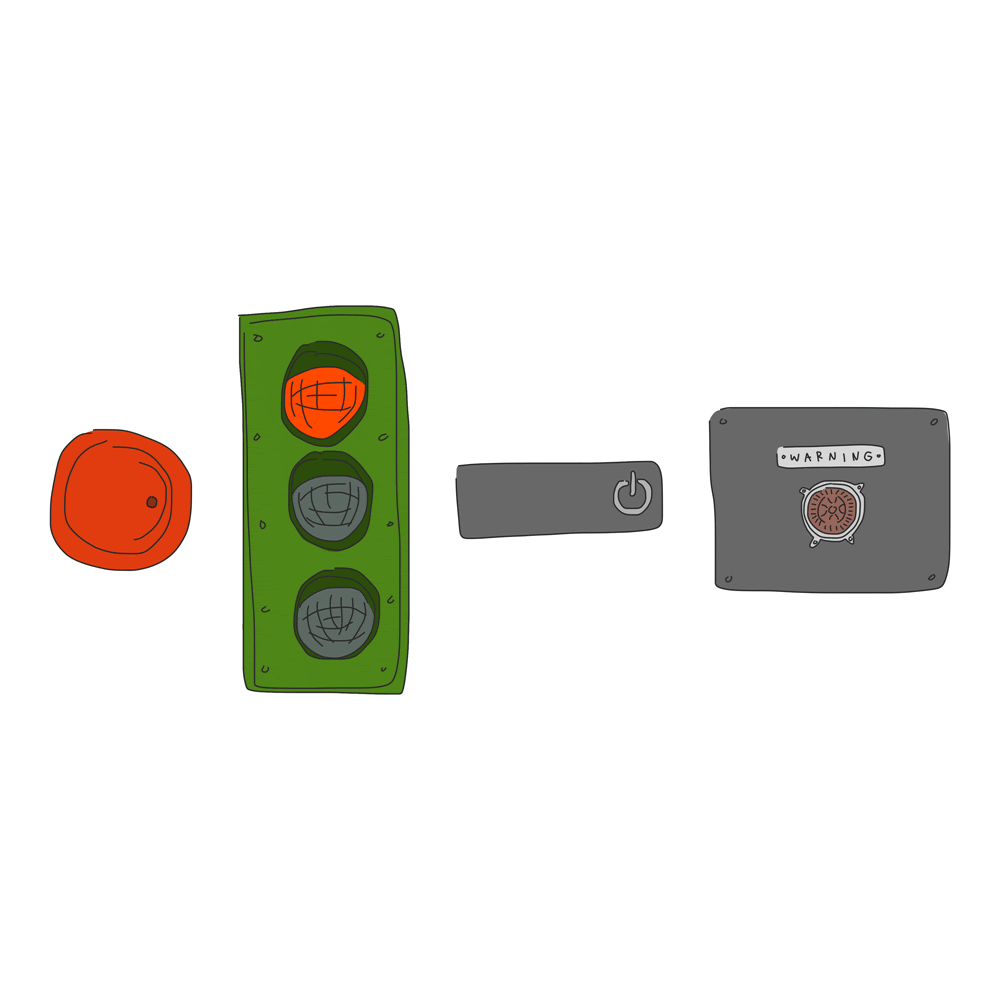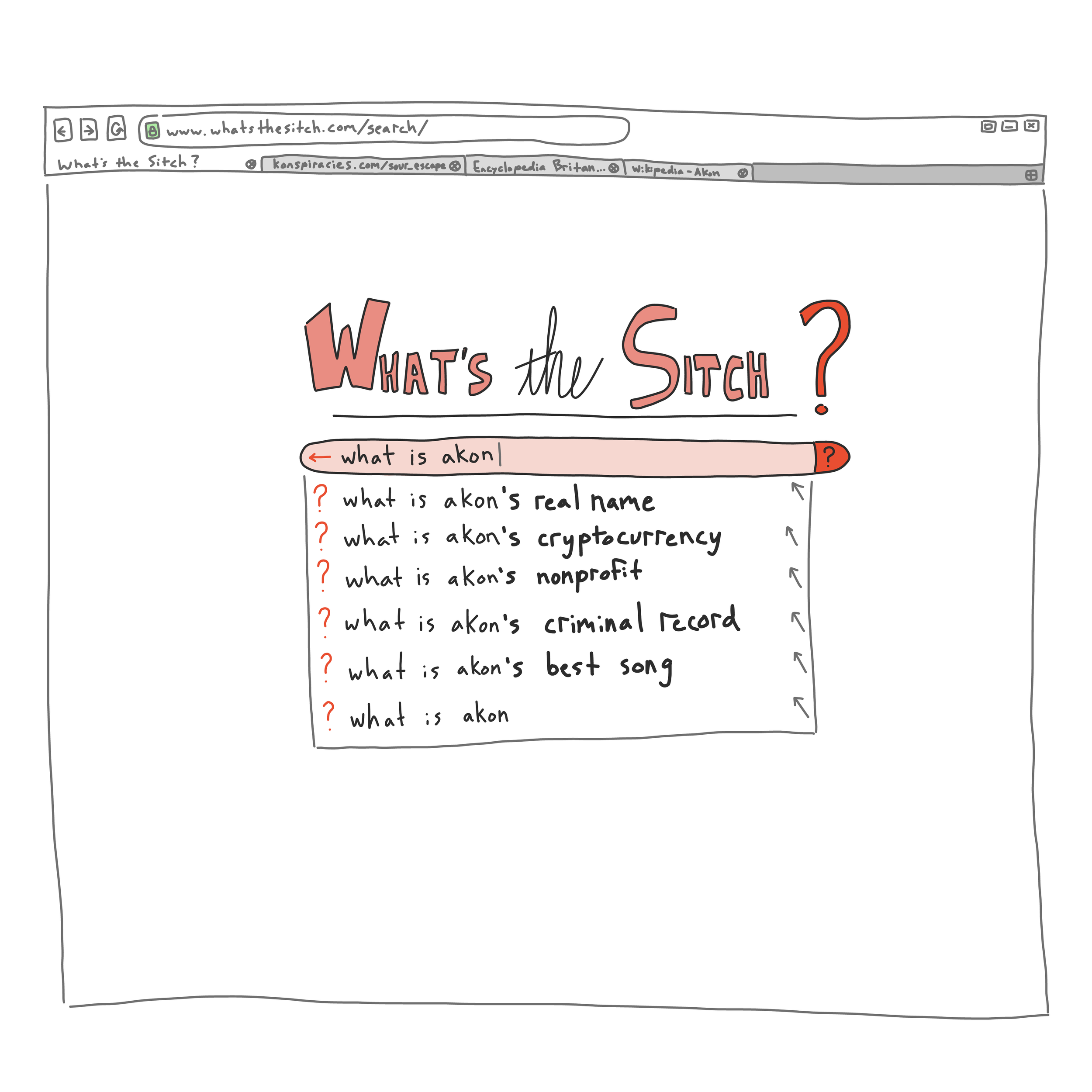Tupperware Savant
I still remember the night I found out. It was fall and our family had just finished eating dinner together. The kitchen was full and bright, infused with a savory smell and the sound of sink water running over dishes.
I was in 5th or maybe 6th grade, in one of those sweet spots of youth where parents’ company can be enjoyed without also feeling an overwhelming urge to rebel. During this time I was happy to help them clean up after dinner (though my weekly allowance was a nice reminder that I didn’t have a choice).
My mom did most of the cooking in the home. On this night she had made a rich, red soup, chunky with vegetables. My dad had contributed with one of his specialties, gooey, grilled cheese sandwiches on sourdough. A match made in nondenominational heaven. There were no grilled cheese left after we all filled ourselves, but there was leftover soup, likely enough for two or three large servings.
“Honey, can you find a container for the extra soup?”
My mom didn’t look over at my dad from her seat at the dining room table, slowly sipping carbonated water.
I knew this type of storage task should probably be reserved for someone with more experience. God-forbid the wrong sized Tupperware was chosen, cluttering the fridge with unused container space, or worse, leading to spilled soup during the transfer.
But for some reason, on this night, I felt something. It wasn’t quite a tingle down my spine, but that may be the best way to describe it. A confidence came through me the likes of which I hadn’t yet experienced during my 11 short years in kitchens. It was unrelenting. I knew the size of the Tupperware we needed. Not because I had carefully studied how much soup was left, or put a spoon to the bottom to test its depth. I just knew.
Without saying a word, I went to the cabinet where we stored our food containers. A shimmering void filled my mind, clearing it of distraction. I wasn’t running into the objects around me so I knew my eyes were functioning, but I wasn’t really experiencing eyesight. My vision was coming from somewhere else. I grabbed at one large glass jar and a medium cylindrical plastic tub, one in each hand.
I should add here, in addition to being a great cook, my mom is a great collector. And one of her favorite things to collect is containers to hold food. Her cabinet is a menagerie; small, skinny jars that once held olives next to the squat, shallow vessels of bygone parmesan, huddled close to an occasional, honest-to-goodness Tupperware-brand container, likely pilfered from family or friends.
Holding my chosen containers I walked over to the soup, which was still quite warm. I filled the large jar first, leaving half an inch of airspace so the top could tighten comfortably. There remained a decent layer of stew to store. I poured without fear into the second tub, sensing the level rise and approach the top, though never in danger of overflow. As I had known when grabbing the receptacles, they were the perfect volume for the leftover food. Any other two would not have been as well-matched; they were the correct answers. I knew then I had a gift.
It took a few more examples before my parents were convinced, but by the third or fourth perfect vessel choice, they understood I wasn’t like other children.
Soon after, I recall a somewhat tense exchange between my parents that I only understood in retrospect, when I was much older.
“Change schools!? What about his friends? He needs to be around normal kids, happy kids. We can’t make him feel like this new-found power makes him somehow… different.”
“You think I don’t understand!? I get it! I fucking get it!! But, honey, he’s not normal. Not anymore. And we can’t shelter him from the truth. We knew this day might come when we enrolled him in those trials… I’ve just been hoping against hope, for all these years, that he was in the control arm…”
“I guess you’re right… If only we hadn’t been so careless when cleaning up! If only we hadn’t let him near those Tupperwares…”
Soon after they took me out of public schools and sent me to an academy for the gifted.
Even there I was treated differently. Many of my classmates were precocious math geniuses or violin virtuosos, or had already built and sold a successful website. They didn’t understand why I was in their midst given my vague and, perhaps in their view, bogus reason for admission. But they also gave me a wide birth; I was the only one who had an unexplainable gift; a possibly magical power.
In the years that followed I was wary to use my talents too often, especially in front of strangers. I did not want arouse suspicion or invite questions, questions I wouldn’t be able to answer. I didn’t know why I had been endowed with this capacity to exactly equate food volumes to container space. I didn’t know why I, of all people, should have this great responsibility when cleaning up after a meal.
By college I was used to keeping my powers hidden and so I found this easy to continue. I wanted to reinvent myself, to make friends on my own merits. During my freshman year I ate at the cafeteria for most meals and had only a miniature fridge in my small dorm room, which was primarily for beer and science experiments.
Eventually, some friends and I moved to live off-campus, but still I didn’t find myself regularly storing leftovers. Our refrigerator was somewhat of a free-for-all, despite multiple attempts at rules and regulations. To perfectly utilize every square millimeter of a tub’s space only to find leftover pasta encroached upon by a ravenous, late-night infiltrator, that never felt right. I came to accept the lack of boundaries, the lack of plastic walls and covers; when there is no trust in the staying power of leftovers, there is no value in precision storage.
Then, during our senior year of college, my gift was revealed in a very public way. My roommates and I were all in the process of applying for jobs to begin after graduation. It was a bittersweet time, looking to the future while trying to enjoy our last months together.
Among other job-related emails, I received an unusual message to my inbox.
I didn’t recognize the sender. The subject line said, “Do you have an incredible gift?” I was caught off-guard; it seemed like something I had been waiting to receive for a long time.
The body of the message was more ominous,
“We know who you are. It is your time to serve. We will be in contact.”
There was no signature.
The message upset me. Who were these people? How did they know about my abilities? I tried to rationalize that it was just random phishing, and though it seemed specific to my situation, it was merely coincidence.
Not long after the email I was stopped on the street. A man in an dark overcoat approached and came to a stop directly in my path. He handed me a small, folded slip of paper, similar to the fortune from a cookie.
“Hello NJ. Do not be alarmed. You are needed urgently on the front. Report to this address tomorrow morning.”
“What is this about? Who are you? What do you want with me?”
The man lifted his head to meet my questioning gaze. He had a stern, weathered appearance, though there was also a subtle smile at the corners of his eyes.
“You know why you are needed; you were given a great power, and now it is time to utilize it in the service of your country. As for me, I’m of no consequence… but if you need a name you an call me Special Agent P-F453.”
With that, he stepped around me and began to walk away.
“Tomorrow morning… what if I don’t show up?”
He paused for a step and without turning around said,
“We know who you are, where you go, where your family lives… you’ll show up.”
My taxi pulled-up the following morning to the address the agent had given. We were nearly an hour outside of the city at what appeared to be a solitary airstrip with a metal grey cargo plane. I stepped onto the windy tarmac carrying a backpack with only a change of clothes and a laptop.
One man in uniform stood rigidly nearby.
“Are you NJ?”
Without waiting for an answer he continued.
“Welcome to the military son. We’ll leave in a few minutes.”
To abbreviate a much longer story, I didn’t return home for 24 months. I was stationed at a base in Oman. I woke each morning at 0500 to begin choosing perfect sized containers for all food-related storage needs. This included all variety of situations, from individual marines going on secret missions behind enemy lines, to naval admirals preparing their fleets for weeks-long maneuvers in the Gulf, needing to store food efficiently below deck. I even assisted the simple mess-hall privates who were tasked daily with storing and reusing left-over rations. I worked long, grueling hours, assessing foodstuffs and selecting accurate vessels; I was indispensable to the unit.
Despite my abrupt conscription and the wrench it threw in my post-graduate plans, I quickly learned to enjoy my work. I finally felt as if my intrinsic talents were appreciated, as if I belonged, as if I had purpose.
This all changed abruptly one morning. It was my second year in the service. To this point, I had been blissfully ignorant about exactly why our military was in this region of the world. I kept my head down and filled containers with food; what the soldiers did after digestion wasn’t my concern.
On this morning a battalion of ground troops had just returned from an engagement north on the peninsula. They were hungry and excited for fresh breakfast cooked on the base, rather than the dry rations they had been living on for weeks. Few leftovers remained after breakfast, so I had little to do and my mind was allowed to wander.
Unoccupied, I overheard two soldiers speaking animatedly about their recent campaign.
“I’m not even sure why we are here… the locals certainly don’t need or want us around. It seems as if we are just trying to maintain a fading empire, one bullshit operation at a time. If it weren’t for such well-packed food and luggage, I’d have a hard time keeping up this charade.”
Their conversation hit me like a ton of bricks. Maybe my skills weren’t being used for good? Maybe America’s military presence in the Middle East isn’t a righteous pursuit? Maybe I had been lied to… or worse, maybe I had been lying to myself?
The next morning I arrived early to speak with my commanding officer, General Rogers, in his barracks.
“Sir, no one has yet told me… when can I return home to my civilian life? How much longer will I be here?”
“Why do you ask, private? Are you not still satisfied with your role?”
“I guess not, sir… I’m growing disillusioned with our mission. And… well… it was never explained to me why I was brought in the first place.”
“Private, honestly, I was hoping this day would never come… your enlistment technically has no end-date. Though, if you are unhappy you will be of little value to our mission.
“If I explain things, will you stay at least until the end of the year? We could really use you onboard for the remainder of our operation. The food won’t perfectly store itself.”
“I suppose I have little say in the matter,” I responded.
“Very well. This is highly classified, and must stay between us. If anyone finds out that you know, keep my name out of it… private?”
“Yes sir, I understand sir.”
The General continued.
“All I know is, NJ, you were part of an experimental program, from birth. A program aiming to influence and enhance the skillsets of select American children. It was a multifactorial approach, with some genetic modification, some developmentally-appropriate pharmaceutical regimens, some physical and psychological training… those in charge were hoping to create super soldiers with a wide variety of talents.”
I listened with rapt attention, not sure how to respond. My life had been a lie.
“We discovered early-on in the program that many of the most desirable traits were not easy to implant… or that they necessarily led to the expression of unintended traits, negative traits… such as anger… such as violent tendencies. Many in your cohort had to be… let go, before anything got out of hand.
“Overall, the program was deemed a failure. It was shut down after only a few birthing pods. But there were rare success stories. One of which is you, NJ. Your food-specific spacial awareness is a much more complex trait than leadership initially considered, and given the poor results from the majority of your experimental group they thought the desired trait likely hadn’t been expressed in you either. But you had no ill side-effects from the therapies and so were allowed to return home to your family.
“We eventually got a call from your parents when you were about 10 or 11 years old. They knew then something was unusual about you. We thought they were overreacting, that there was unlikely anything of value. But we started covertly monitoring your activities anyway. We quickly realized you were more talented than any other child who came out of the program. You were our most powerful graduate.
“In order to show the higher-ups that the program wasn’t a complete waste of resources, we decided that, when you were ready and of-age, we would bring you out to test your skills on the frontlines. You’ve since performed beyond expected, private.
“I know this is a lot to process, but I do want to reiterate, we thank you for your service to this country.”
I was stunned. My parents were involved? I was a mutant created by military scientists to help them in their imperial conquests? Others just like me were, “let go,” because of mistakes made during diabolical experimentation?
“Sir, thank you for telling me of my origins. I feel I need to go back to my room with a few Tupperwares and think this through.”
“Take your time but, private, remember our agreement.”
“I won’t tell a soul General. And I’ll stay through the end of the campaign.”
The next 10 months passed in a blur. I continued to precisely match various quantities of food with available storage containers. I did my duty. But I also knew, when my time came to an end, I would never again use my powers in the service of the military; I would never again nutritionally support those with violent intentions. I was a product of this destructive force, but I didn’t have to continue be a part of it.
It took some time after my return to civilian life to be able to forgive; myself, my parents, my country. Only now, in later adulthood, have I been able to truly appreciate my gift again, without any resentment.
Some might say, “That isn’t really a supernatural power,” or, “You don’t seem special,” or, “Even if it is one, that’s the least useful super power there is. I would have picked teleportation.” These people clearly don’t quite understand. I pick the perfect container every time, without having to think about it. I waste no time pondering, no time going back into the cabinet to get another after underestimating the size, no time washing a Tupperware accidentally dirtied by poor judgement. I haven’t added up all of the time saved but I imagine it is quite substantial. One could argue, it basically is teleportation, but a less selfish version. Again, I’m a genetically modified super soldier.
A few weeks ago I was home, visiting my parents. We had dinner plans. Before any food was on the table, I opened the cabinet holding my mom’s container collection; stunning as always. I picked out a few to feel their heft, to snap and unsnap their tops, to depress the button in the middle of the jar lids. I put them back as close as I could to where I found them, not an easy task given the menagerie. I wouldn’t be selecting a Tupperware for leftovers on this night; we were going out for dinner. But it is always good to see old friends; to remember where it all started.



